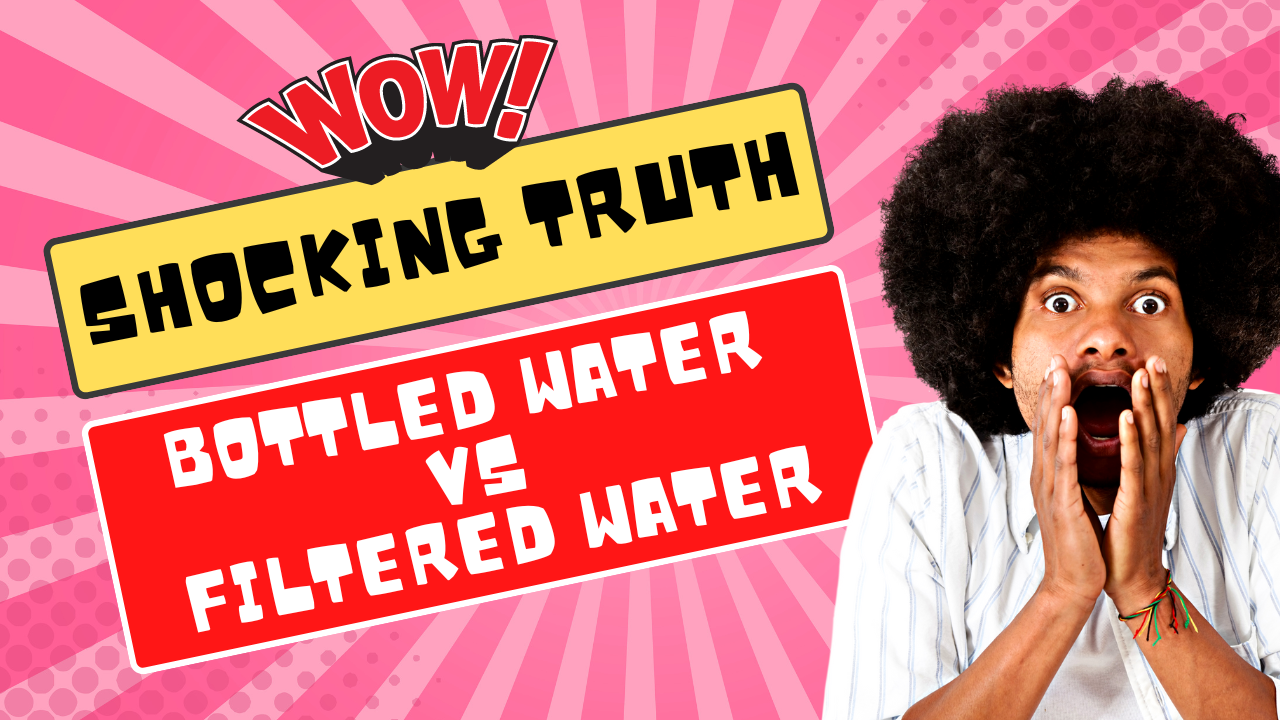Bottled water has become a staple for many households, with Americans consuming around 50 billion bottles yearly. However, as homeowners become more conscious of costs, environmental impacts, and health implications, the debate between bottled and filtered water becomes relevant.
This blog post sheds light on this debate by comparing the cost, environmental impact, health and safety, convenience, and accessibility of bottled versus filtered water. By understanding these factors, you can make an informed decision that best suits your needs and values.
Cost Comparison
When weighing the costs of bottled water against a reverse osmosis system, it’s essential to consider both the initial and ongoing expenses involved.
Initial Costs
Bottled water may seem more affordable due to its low upfront cost. A case of bottled water typically costs between $4 to $10. In contrast, installing a reverse osmosis system involves a higher initial investment, ranging from $1,800 to over $2,100, including installation fees.
Long-Term Expenses
The long-term financial implications tell a different story. A family of four might consume around 800 gallons of water annually, equating to $800 annually for bottled water. Over a decade, that’s $8,000. Conversely, while costly upfront, a home water filtration system offers significant savings over time. Maintenance and filter replacement costs typically amount to $100 to $200 per year, bringing the ten-year total to approximately $2,000—substantially lower than the cost of bottled water.
Environmental Impact
The environmental impact of bottled water versus filtered water is a crucial factor to consider.
Plastic Waste
Millions of plastic bottles end up in landfills and oceans each year. In the United States alone, it’s estimated that only about 30% of plastic bottles are recycled, leaving the majority to become waste, which can take hundreds of years to decompose.
Carbon Footprint
The production and transport of bottled water have a substantial carbon footprint. Manufacturing plastic bottles requires significant fossil fuels, and the process releases considerable amounts of carbon dioxide. Additionally, transporting bottled water adds to the overall carbon emissions. In contrast, using a home water filtration system dramatically reduces these impacts by eliminating the need to manufacture and transport single-use plastic bottles.
Sustainability
Home water filtration systems installed by Reliable Services utilize more environmentally friendly materials. Filters can be replaced periodically, and many companies offer recycling programs for used filters. Moreover, homeowners can significantly reduce their reliance on single-use plastics by filtering tap water, leading to a more sustainable lifestyle.
Health and Safety
When comparing bottled water and filtered water, health and safety are paramount concerns.
Contaminant Levels
Bottled water is often perceived as cleaner and safer than tap water; however, studies have shown that some bottled water can contain microplastics, chemicals from plastic leaching, and even bacteria if not stored properly. A high-quality home water filtration system is designed to remove a wide range of contaminants, including chlorine, lead, pesticides, and other harmful substances that may be present in tap water.
Regulations and Standards
Regulatory standards for bottled water and tap water can differ significantly. Bottled water is regulated by the Food and Drug Administration (FDA), which has less stringent testing and reporting requirements than the Environmental Protection Agency (EPA), which oversees tap water quality. Home water filtration systems can further improve tap water quality by removing additional contaminants, providing an extra layer of safety.
Purity and Taste
The perceived purity and taste of water are also important factors. Many believe bottled water is purer than tap water, but this is not always true. The taste of bottled water varies depending on its source and the type of plastic used for bottling, which can sometimes impart a slight flavor. Home water filtration systems, particularly those with advanced technologies like reverse osmosis or activated carbon filters, can significantly improve the taste and purity of tap water by removing chlorine and other impurities that affect flavor.
Convenience and Accessibility
When deciding between bottled water and a home water filtration system, convenience and accessibility are critical considerations
Ease of Use
Bottled water is often considered convenient due to its portability and immediate availability. Grabbing a bottle on the go is easy and can be particularly appealing for busy lifestyles or outdoor activities. In contrast, a home water filtration system offers convenience in a different way. Once installed, it provides a continuous supply of filtered water directly from the tap, eliminating the need for frequent trips to the store and the hassle of carrying heavy cases.
Availability
Bottled water is readily available in most grocery stores, convenience stores, and vending machines, making it easy to obtain in most situations. This can be especially useful during emergencies when clean water is a necessity. However, in regions with limited access to stores or during extreme weather events, the availability of bottled water can become an issue. Home water filtration systems ensure a consistent supply of filtered water as long as there is access to tap water, which can be crucial in areas with questionable water quality or during times when bottled water may be scarce.
Storage and Space
Bottled water requires significant storage space, both at home and when transported. A sufficient supply of bottled water can take up valuable space in pantries, garages, or refrigerators. Additionally, empty bottles create clutter and require regular disposal or recycling. A home water filtration system, however, is a compact solution that integrates seamlessly with the existing plumbing. It eliminates the need for bulk storage of water bottles and reduces the amount of plastic waste, making it a more space-efficient and environmentally friendly option.
Making the Best Choice for Your Water Needs
In short, a home water filtration system offers significant long-term savings, reduces environmental impact, and ensures better health and safety compared to bottled water. While bottled water provides on-the-go convenience, the benefits of filtered water make it the clear choice for many homeowners. Evaluate your priorities and choose the option that best suits your needs. Explore water filtration solutions on our website for more information and assistance. Make the switch to a healthier, more sustainable water solution today!


